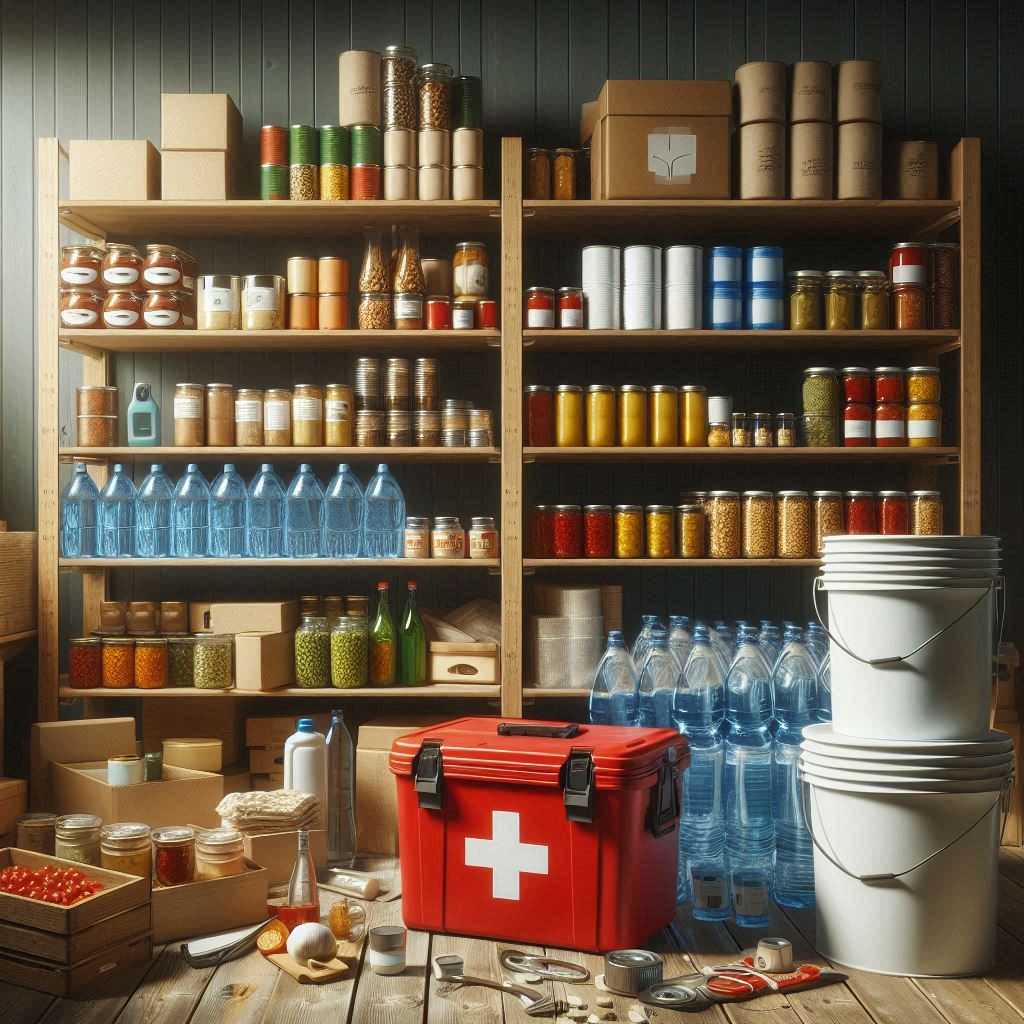
Emergency Preparedness: Items and Tips
When it comes to being prepared for emergencies and world disasters, having the right items and knowledge can make all the difference. Here is a list of essential items and tips to help you stay safe and ready for any situation.
* One very important piece of advise we can give you is as you and your family are prepping and gathering what is needed for your household, it is highly important to do it all discreetly. Move in silence. You don't need to broadcast or tell everybody about all your preparations and share every ounce of details about your where-abouts, and exactly what your plans are.
When disaster strikes people will do anything to get what they want even if a life is harmed, so please use wisdom and discretion while prepping. Alright! Now on to the good stuff...
Click Here To Download Your Free Prepper List
Emergency Kit Essentials
1. Water: Make sure to have an adequate supply of clean drinking water for each person in your household.
2. Non-perishable Food: Stock up on canned goods, protein bars, and other non-perishable items that can last a long time.
3. First Aid Kit: Include bandages, antiseptic wipes, medications, and any necessary medical supplies.
4. Flashlight and Batteries: In case of power outages, a reliable light source is crucial.
5. Multi-tool: A versatile tool that can come in handy for various tasks during emergencies.

Stock Pile List (list includes foods for non vegans too)
- Bottled Water
- Canned Vegetables
- Canned Fruits
- Canned Meats (for those who eat meat)
- Canned Soups and Stews
- Dried Beans and Lentils
- Rice
- Pasta
- Instant Noodles
- Powdered Milk or Shelf-Stable Milk(plant based or other)
- Cooking Oils
- Peanut Butter and other Nut Butters
- Honey
- Jam or Jelly
- Crackers
- Dried Fruits
- Canned Tomatoes
- Instant Oatmeal
- Cereal
- Flour
- Sugar
- Salt
- Seasonings
- Dried Herbs and Spices
- Baking Powder and Baking Soda
- Instant Coffee or Tea Bags
- Shelf-Stable Juices
- Ready-to-Eat Meals (MREs)
- Shelf-Stable Cheese (plant based and other)
- Canned Chili
- Instant Mashed Potatoes
- Canned Pasta Sauce
- Shelf-Stable Tortillas
- Canned/Box Veggie Stock or Broth
- Canned Fruit Juice Concentrate
- Powdered Soup Mixes
- Instant Rice or Couscous
- Freeze-Dried Vegetables
- Granola Bars and Trail Mixes
- Shelf-Stable Pancake Mix
- Soy Sauce or Other Condiments
- Textured Vegetable Protein
- Baking Ingredients
- Shelf-Stable Creamers
- Emergency Cooking Supplies
- Manual can opener
- Matches or a lighter
- Pet Food (if applicable)
- Portable Solar Panels
- Emergency Blankets
- Emergency Respiratory Device
- Emergency Radio
- Extra Physical Bibles
- Physical Cash
- Bartering Items
- Flashlights
- Cleaning and Sanitation Items
- Feminine Hygiene Products
- Candles
Additional Tips:
- Check Expiry Dates: Ensure that all items have a long shelf life and rotate stock to use older items first.
- Special Dietary Needs: Adjust the list based on any specific dietary needs of your household.
- Storage: Store foods in a cool, dry place, and keep them in airtight containers if necessary.
This list covers a range of foods that provide essential nutrients and energy, ensuring you’re well-prepared in case of an emergency.
Important Documents
6. Copies of Identification: Keep copies of passports, driver's licenses, and other important documents in a waterproof container.
7. Emergency Contact List: Have a list of emergency contacts, including family members, friends, and local authorities.
8. Insurance Information: Keep copies of insurance policies and important financial documents in a secure place.

Additional Tips
9. Stay Informed: Keep up to date with news and alerts about potential disasters in your area.
10. Have a Plan: Create a family emergency plan that includes evacuation routes, meeting points, and communication strategies.
11. Practice Drills: Regularly practice emergency drills with your family to ensure everyone knows what to do in case of a disaster.
By being prepared and having the right items on hand, you can increase your chances of staying safe and secure during emergencies and world disasters. Remember, it's better to be over-prepared than caught off guard. Stay safe!
